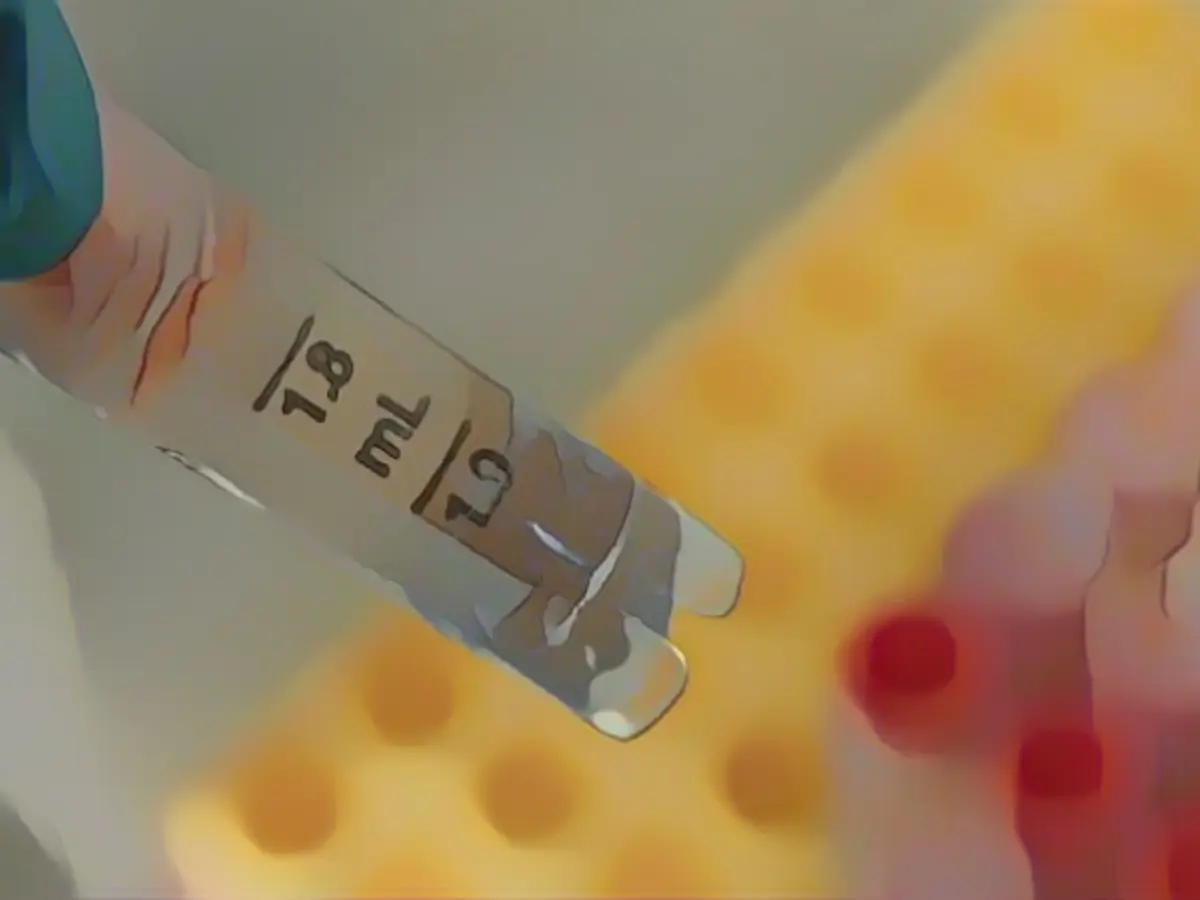Feces in the vault to save intestinal bacteria
Biodiversity is not only under threat in the animal and plant world - it is also under threat in the human gut. However, diversity is very important there, for example to combat diseases. An icebox full of feces is supposed to help - microbiologists want to create a vault for intestinal bacteria from all over the world. And time is of the essence.
Freezing human excrement to combat the loss of biodiversity? Such a project has been launched in Switzerland. This is not about the dramatic development in nature, where countless plant and animal species are disappearing: Biodiversity in humans is also under threat. "We have discovered that we are losing biodiversity in the gut," says medical microbiologist Adrian Egli from the University of Zurich. "There is much more diversity in the Amazon compared to the Western population. This has to do with stress, antibiotics and diet."

Egli uses a comparison to illustrate the treasure that everyone carries within them: "There are a thousand billion bacteria in one gram of stool, 125 times as many as there are people on the planet," he says. "Incredible when you think about what lives inside you." There are between 300 and 500 different species in one person.
Vault like for plant seeds
An international project now aims to save what can still be saved: with a huge vault for human faeces, the "Microbiota Vault" - similar to the seed vault on Spitzbergen, where seeds of several varieties of food plants are stored. Bacteria can survive for decades in a special solution, as Egli says.
Research into intestinal flora is currently still in its infancy. "It is possible that knowledge of the microbiome could be used to develop therapies to positively influence obesity, diabetes, rheumatic diseases or chronic intestinal inflammation," says Egli. The microbiome also includes fungi and viruses, but bacteria are particularly important because they have many significant metabolic properties.
Bacteria in glass plates
Zurich, Gloriastrasse, University of Zurich: In Adrian Egli's laboratory, people in white coats are working with all kinds of sterile tools and equipment. On the table are Petri dishes, small transparent glass plates with contents. What laboratory manager Diana Albertos Torres is inspecting are bacteria that she has extracted from stool samples.
To the untrained eye, only small dots are visible on the red agar plate. Torres knows that it is probably Pseudomonas aeruginosa, a bacterium that causes pneumonia, among other things. However, there is no danger. "No, bacteria don't jump out of the dish," Torres reassures with a laugh. The laboratory works under the necessary safety precautions.
Microbiome influences diseases
Thanks to new machines and methods, it is now possible and affordable to conduct genetic research into intestinal bacteria. "There are new discoveries every week," says Egli. "And the whole of humanity can benefit from the analysis of bacteria." The microbiome is linked to diseases such as cancer and autoimmune disorders, for example.
One special feature: the digestive tract is home to vast quantities of bacteria that do not tolerate air, so-called anaerobic bacteria. As Egli explains, little research has been done on them. "There are certainly 1000 times as many bacteria in the intestine that cannot tolerate air as those that we have been able to isolate and know about."
Helpful in the fight against cancer?
It is conceivable that the targeted use of bacteria could one day improve the response to cancer therapies, says Egli. Stool transplants are another field of medicine. "A stool sample with an optimal microbiome given to a patient - studies have shown that this can contribute to recovery."
Maria Gloria Dominguez-Bello, a microbiologist from Venezuela who conducts research in the USA, has been campaigning for an intestinal bacteria vault for years. She was one of the first to determine the extent to which bacterial diversity in humans differs depending on where they live and their living conditions, using samples from the Amazon region as an example.
Self-experiment in Africa
A few years ago, British epidemiologist Tim Spencer conducted an experiment: he spent three days with indigenous hunter-gatherers in Tanzania and shared their lifestyle and food, including fruit pods from the baobab tree and all kinds of meat. After just three days, the biodiversity in his gut had increased by 20 percent, as he reported in the online journal "The Conversation".
Why is diversity important? A team led by microbiologist Frances Spragge from the University of Oxford has just reported in the journal "Science" that gut bacteria can, for example, prevent the colonization of pathogens that make people ill.
People can contribute to a good microbiome themselves. For example, a diet rich in fiber is important. This refers to largely indigestible, plant-based food components. Among other things, they influence satiety, how long food remains in the stomach and intestines and how well nutrients are absorbed by the body.
Important: lots of fiber
According to the German Nutrition Society (DGE), a high fiber intake has a protective effect on cardiovascular disease, type 2 diabetes, obesity, high blood pressure and colon and breast cancer. High-fiber foods include pulses, nuts and seeds, wholegrain products as well as vegetables and fruit such as artichokes, peppers and rhubarb.
Egli works together with Pascale Vonaesch from the University of Lausanne and Nicholas Bokulich from the University of ETH in Zurich in the "Microbiota Vault" pilot team. Egli has the freezers in which around 2,500 stool samples from countries including Ethiopia, Laos, Puerto Rico and Switzerland have been frozen at minus 80 degrees. It's not easy: samples have to be frozen within hours in order to preserve bacterial diversity. Dominquez-Bello has shock-frozen samples in remote Amazon regions using liquid nitrogen. A continuous cold chain and lots of paperwork are required for export to Switzerland.
Iceboxes soon to be full
According to Egli, the pilot project is almost complete, with largely positive results. Tens of thousands of samples from all over the world will soon be arriving in Zurich.
A vault for final storage will have to be built for this, says Egli. The ice cabinets in his laboratory will soon no longer be sufficient.
Read also:
- This will change in December
- Fireworks and parties ring in 2024 - turn of the year overshadowed by conflicts
- Attacks on ships in the Red Sea: shipping companies avoid important trade route
- Houthi rebels want to launch further attacks despite international coalition
The loss of gut biodiversity, including a reduction in the variety of bacteria, is linked to factors such as stress, antibiotics, and diet, leading to illnesses like obesity, diabetes, and chronic intestinal inflammation. (Illness, Health, Nutrition)
Researchers are working on creating a 'Microbiota Vault', a repository of feces from various parts of the world, to preserve this biodiversity for future generations and explore potential medical applications, such as improving responses to cancer therapies. (Health, Illness, Nutrition, Education, colon cancer)
Source: www.ntv.de







